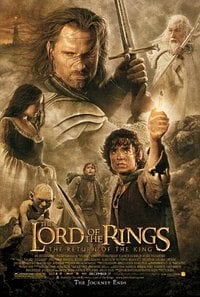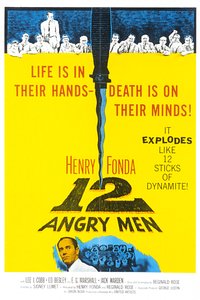
The Mission Quotes
18th century Spanish Jesuits try to protect a remote South American Indian tribe in danger of falling under the rule of pro-slavery Portugal.
Mendoza: Though I have all faith so that I could remove mountains and have not love, I am nothing. And though I bestow all my goods to feed the poor and though I give my body to be burned and have not love, it profiteth me nothing. Love suffereth and love is kind. Love envieth not. Love vaunteth not itself, is not puffed up. When I was a child, I spake as a child, I understood as a child, I thought as a child. But when I became a man, I put away childish things. But now abideth faith, hope, love... these three. But the greatest of these is love.
Altamirano: What was your income last year?
Jesuit: Last year, 120,000 escudos.
Altamirano: And how was it distributed?
Jesuit: It is shared among them equally. This is a community.
Altamirano: Ah yes, there is a French radical group that teaches that doctrine.
Jesuit: Your Eminence, it was the doctrine of the early Christians.
Jesuit: Last year, 120,000 escudos.
Altamirano: And how was it distributed?
Jesuit: It is shared among them equally. This is a community.
Altamirano: Ah yes, there is a French radical group that teaches that doctrine.
Jesuit: Your Eminence, it was the doctrine of the early Christians.
Sebastian: Your Christian community is commercially competitive.
Altamirano: Yes. It's very prosperous. Isn't that precisely why you want to take it over?
Sebastian: No. You should've achieved a noble failure if you wanted the state's approval. There's nothing we like better than a noble failure. It's deeply reassuring to a trading nation such as my own.
Altamirano: Yes. It's very prosperous. Isn't that precisely why you want to take it over?
Sebastian: No. You should've achieved a noble failure if you wanted the state's approval. There's nothing we like better than a noble failure. It's deeply reassuring to a trading nation such as my own.
[first lines]
Altamirano: Your Holiness, the little matter that brought me here to the furthest edge of your light on Earth is now settled. The Indians are once more free to be enslaved by the Spanish and Portuguese settlers. I don't think that's hitting the right note. Begin again... Your Holiness, I write to you in this year of Our Lord 1758 from the southern continent of the Americas, from the town of Asunción, in the Province of La Plata, two weeks march from the great mission of San Miguel. These missions have provided a refuge for the Indians against the worst depredations of the settlers and have earned much resentment because of it. The noble souls of these indians incline towards music. Indeed, many a violin played in the academies of Rome itself has been made by their nimble and gifted hands. It was from these mission the Jesuit fathers carried the word of God to the high and undiscovered plateau to those Indians still existing in their natural state and received in return, martyrdom.
Altamirano: Your Holiness, the little matter that brought me here to the furthest edge of your light on Earth is now settled. The Indians are once more free to be enslaved by the Spanish and Portuguese settlers. I don't think that's hitting the right note. Begin again... Your Holiness, I write to you in this year of Our Lord 1758 from the southern continent of the Americas, from the town of Asunción, in the Province of La Plata, two weeks march from the great mission of San Miguel. These missions have provided a refuge for the Indians against the worst depredations of the settlers and have earned much resentment because of it. The noble souls of these indians incline towards music. Indeed, many a violin played in the academies of Rome itself has been made by their nimble and gifted hands. It was from these mission the Jesuit fathers carried the word of God to the high and undiscovered plateau to those Indians still existing in their natural state and received in return, martyrdom.
Gabriel: Come with me to my mission in San Carlos. There's so many distractions in here. It's hard to see anything clearly. I think, that, there your prayers might meet with better fortune. I think, there, God would tell you what it would be good to do. And He'd give you the strength and the grace to do it whatever it costs you.
Altamirano: Why must they fight? Why can't they return to the jungle?
Gabriel: Because this is their home. Did you know this was going to be your decision?
Altamirano: Yes.
Gabriel: Then why did you come, Your Eminence?
Altamirano: To persuade you not to resist the transfer of the mission territories. If the Jesuits resist the Portuguese then the Jesuit order will be expelled from Portugal. And if Portugal, then Spain, France, Italy... who knows? If your order is to survive at all, Father, the missions must here be sacrified.
Altamirano: [a native child talks to Gabriel] What are they saying?
Gabriel: They say they didn't want to go back to the forest because the devil lives there. They want to stay here.
Altamirano: And what did you say?
Gabriel: I said I'd stay with them.
Gabriel: Because this is their home. Did you know this was going to be your decision?
Altamirano: Yes.
Gabriel: Then why did you come, Your Eminence?
Altamirano: To persuade you not to resist the transfer of the mission territories. If the Jesuits resist the Portuguese then the Jesuit order will be expelled from Portugal. And if Portugal, then Spain, France, Italy... who knows? If your order is to survive at all, Father, the missions must here be sacrified.
Altamirano: [a native child talks to Gabriel] What are they saying?
Gabriel: They say they didn't want to go back to the forest because the devil lives there. They want to stay here.
Altamirano: And what did you say?
Gabriel: I said I'd stay with them.
Mendoza: I want to renounce my vows of obedience.
Gabriel: Get out.
Mendoza: I want to explain...
Gabriel: Get out, Rodrigo. I won't listen to you.
[pause]
Gabriel: Just you?
Mendoza: No, it's Ralph and John too.
Gabriel: What do you want captain, an honorable death?
Mendoza: They want to live, Father. They say that God has left them, He's deserted them. Has He?
Gabriel: You shouldn't have become a priest.
Mendoza: But I am a priest, and they need me.
Gabriel: Then help them as a priest! If you die with blood on your hands, Rodrigo, you betray everything we've done. You promised your life to God. And God is love!
Gabriel: Get out.
Mendoza: I want to explain...
Gabriel: Get out, Rodrigo. I won't listen to you.
[pause]
Gabriel: Just you?
Mendoza: No, it's Ralph and John too.
Gabriel: What do you want captain, an honorable death?
Mendoza: They want to live, Father. They say that God has left them, He's deserted them. Has He?
Gabriel: You shouldn't have become a priest.
Mendoza: But I am a priest, and they need me.
Gabriel: Then help them as a priest! If you die with blood on your hands, Rodrigo, you betray everything we've done. You promised your life to God. And God is love!
Altamirano: [about native boy] Don Cabeza, how can you possibly refer to this child as an animal?
Cabeza: A parrot can taught to sing, Your Eminence.
Altamirano: Ah yes, but how does one teach it to sing as melodiously as this?
Cabeza: Your Eminence. This is a child of the jungle, an animal with a human voice. It if were human, an animal would cringe at its vices. These creatures are lethal and lecherous. They will have to be subdued by the sword and brought to profitable labor by the whip.
Cabeza: A parrot can taught to sing, Your Eminence.
Altamirano: Ah yes, but how does one teach it to sing as melodiously as this?
Cabeza: Your Eminence. This is a child of the jungle, an animal with a human voice. It if were human, an animal would cringe at its vices. These creatures are lethal and lecherous. They will have to be subdued by the sword and brought to profitable labor by the whip.











